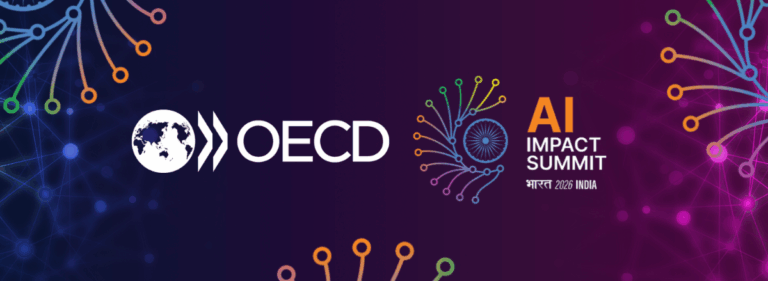OECD AI Review of Germany: A new phase for Germany’s AI strategy

In an era marked by rapid technological evolution and geopolitical shifts, Germany stands at a crucial juncture in its journey towards becoming a global leader in artificial intelligence (AI). The recent OECD AI review of Germany’s AI ecosystem highlights the country’s strengths, weaknesses, and opportunities, providing invaluable insights designed to help shape Germany’s AI vision for the future.
Germany’s AI landscape: A foundation of strength
Germany’s AI strategy, initially launched in 2018 and updated in 2020, was one of the first national efforts to systematically foster AI development and adoption. The strategy’s primary objectives are to ensure Germany’s future competitiveness, promote responsible and trustworthy AI development, and embed AI into society through broad societal dialogue and active political efforts. Germany’s commitment to these goals is reflected in the robust network of public and private research institutions, which have positioned Germany as a leader in global AI trends and standards.
The OECD review underscores that national research excellence and solid computational capacity are both critical assets in the AI race. German researchers consistently rank among the top globally in AI research publications, demonstrating our significant contributions to advancing AI knowledge and applications. Moreover, Germany’s substantial compute capacity in academia, essential for training sophisticated AI models, provides a competitive edge, particularly as AI research becomes increasingly computationally intensive.

Human-centred AI is a guiding principle
Germany’s AI strategy prioritises human-centred development, focusing on AI applications that enhance human capabilities, respect privacy, and ensure fairness. This approach is ethically sound and aligns AI advancements with societal objectives, ensuring that the technology broadly serves the public interest. Our policies and research initiatives reflect this ethos, helping to set a global benchmark for responsible AI development. The positive attitude towards AI in the workplace, fostered through active consultation with workers and addressing their concerns, further illustrates this approach’s effectiveness.
Germany’s focus on environmental sustainability complements its commitment to ethical AI. A central theme is the strategy’s dual transition towards a green and digital economy. By leveraging AI to drive decarbonisation and sustainable practices across critical sectors such as energy, transport, and industry, Germany aims to turn environmental sustainability into a competitive advantage.

Ways to address weaknesses
Despite Germany’s strengths, the OECD review highlights areas where they could be reinforced. The relatively low adoption of AI across crucial industries, the gender gap in AI roles, low availability and accessibility of data, fragmented policies and governance mechanisms are notable challenges. To address these issues, the OECD advises enhancing the coordination of AI policy at the highest political level to better streamline efforts across different ministries while signalling that AI is a national priority.
The review also points to the need for a comprehensive assessment of AI skills to address the talent bottleneck. Updating vocational training programmes to incorporate AI-related skills will be crucial in bridging this gap. Expanding the circle of consultation to create a more inclusive policy design process is another significant opportunity. Germany’s strong tradition of social partnership provides a fertile ground for engaging diverse stakeholders in AI policy development. This inclusive approach will ensure broader representation and better alignment of AI policy with societal needs.
>> VISIT GERMANY’S AI DASHBOARD
Germany’s inclusive traditions can reinforce its strategic vision
The current global momentum and surge in AI interest present a perfect opportunity for Germany to drive AI adoption across critical sectors. By crafting targeted policies and funding transformative projects, Germany can accelerate AI penetration in manufacturing, public services, healthcare, and green initiatives. These efforts will enhance its global competitiveness and support the broader societal and environmental goals.
Furthermore, Germany is well-positioned to lead in setting international standards for trustworthy AI. Supporting and funding initiatives promoting ethical AI development globally can reinforce Germany’s leadership role and contribute to global AI governance frameworks.
Key recommendations to strengthen Germany’s AI future
The OECD review provides concrete and actionable recommendations for achieving national AI ambitions and maintaining our competitive edge. These include:
- Secure buy-in at the highest political level: Harmonising policy efforts in areas such as connectivity infrastructure and open-data availability requires commitment from the top political level. The chancellery should take on a central role in orchestrating these policies to unlock opportunities, ensure policy effectiveness, and avoid conflicting or duplicating efforts.
- Leverage AI for sectoral transformation: AI has the potential to transform entire sectors, including manufacturing, which is crucial for the German economy. Germany can address critical national challenges by promoting AI solutions that enhance industrial competitiveness, accelerate the green transition, and improve public administration efficiency.
- Enhance public and workforce engagement: The continued acceptance of AI technology hinges on meaningful dialogue with citizens and workers. Enhancing AI expertise and awareness among workers and employers will cultivate labour-market resilience and support the human-centred approach to AI adoption.
- Widen access to data: Data are the raw material for AI development. Proactively developing data-sharing protocols, mandating the publication of non-sensitive government data, and facilitating the responsible sharing of industry-specific data are crucial steps. Implementing these measures will provide the foundation for robust AI innovation.
- Support AI start-ups: AI start-ups face challenges in accessing capital to scale up. Revisiting the legal framework for capital-collecting institutions and providing targeted government financing will enhance the growth of AI start-ups. Additionally, revising procurement guidelines to facilitate public sector procurement of AI start-ups’ services will stimulate innovation.
- Build a competitive computing infrastructure: To meet stakeholder demands, it is essential to assess and enhance Germany’s current AI compute infrastructure. Ensuring that a portion of this infrastructure is accessible to AI start-ups and SMEs will foster inclusivity and support the broader AI ecosystem.
A solid approach for an AI future
The OECD AI review offers a comprehensive analysis of Germany’s AI landscape, highlighting strengths and identifying areas for improvement. By addressing the challenges and seizing the opportunities outlined in the review, Germany can solidify its position as a global leader in AI, driving innovation, competitiveness, and societal well-being in the years to come.



































